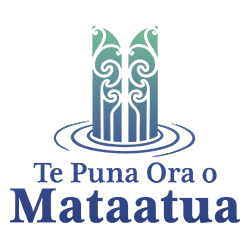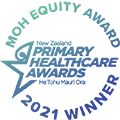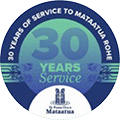Te Puna Ora o Mataatua’s first ever Traditional Māori Healer has pledged a commitment to providing accessible, holistic care to whānau Māori.
Ngāti Awa and Ngai Tūhoe healer, Moko Savage, is the latest to join Te Puna Ora o Mataatua’s Ngā Mata Wai Ora – Counselling and Therapy Hub team in this newly formed role, which specialises in providing Traditional Māori Healing and holistic wellbeing support services to individuals, groups, and whānau in need.

Moko, who has been working as a healer in Mataatua, Te Tairāwhiti and as far as Tāmaki Makaurau, for more than 25 years, has joined the team with a passion and focus of bringing healing to those who need it most.
He says his drive has always been to make rongoā accessible to all whānau.
“This mahi for me, was born from the recognition that so many of our people cannot afford basic health treatment.
“Our people hold onto a lot of mamae and they won’t tell anyone, and a lot of the time I have people come to me for what they think is a physical problem – but for me, I know things aren’t well within their wairua.
“I think if tangata whaiora were ready and right within themselves, we would be a lot better off as a collective and as Māori.”

Beyond individualised care, Moko is also determined to share education and mātauranga Māori with more whānau.
“Everything I know, I was taught by my elders, mainly by my kuia, but also my koroua.
“Now that I’m getting on, a real focus of mine is to teach and to hold wānanga so I can pass on the knowledge I possess.
“I have always known the skills I have were never mine to keep. They were merely mine to hold onto, to then pass on later in life.
“I want to make sure everyone lives well.”
Moko says one of the biggest problems he sees today is the impact stress is playing throughout every whānau.
“Living is hard right now, and so often our whaiora choose what is convenient over what is good for them.
“Take kai for an example, it’s easier to go into a supermarket, to buy cheap kai, rather than growing a maara – even though the maara is where the rongoā is.
“A passion of mine is supporting whaiora to come back to mātauranga Māori but also to help them reprogram their own mind.
“If we educate our people and are consistent with encouraging them to do the things that are healthy for them, we can achieve long term health outcomes.”

Despite living in a different world to the one he was brought up in, Moko remains true to utilising the same rongoā he has always worked with.
“Nowadays there are a lot more diseases, but the great thing is there are so many other tohunga or specialists in those diseases who can offer different care options for our whānau.
“For me I stay true to the five rongoā I have always worked with – I know this works and I don’t feel the pull to learn any new rongoā other than what I have in my kete.
“The thing I find I’m constantly needing to learn instead, is how to work with a range of whaiora.
“It’s important to me that I know how to relate and work with all walks of life from tamariki to rangatahi, pakeke and kaumātua too.
“My mahi is holistic, I take an interest in the whānau I work with, and I take the time to kōrero which means I need to speak the same language as the people I work with.”
He says this approach is his biggest point of difference from others in his field.
“In order for me to find out what’s wrong, I’ll sit and talk – and I don’t care for how long. You can’t rush getting to know someone.”
Moko says outside of work, rongoā still plays a big part of his life.
“It’s my life. It’s not hōhā but it is tiresome, and often it can take its toll, which is why my wife and I will often go and heal ourselves a lot.
“You’re happy though when you see the positive outcome in whānau.”
Travel is another huge passion of Moko’s, and he says everything he needs is right in front of him.
“I haven’t seen half of this country yet, so I love to travel around the motu in my down time. I love Mataatua – you can live here all your life and yet there’s still so much to discover.
“We’ve got it all here, but we haven’t seen it.”
Beyond Mataatua one of his favourite travel destinations is Hokitika on the West Coast of the South Island.
“I was brought up in the 60s and 70s, the West Coast is somewhere you can go back to, and it still hasn’t changed, it’s the same as it was when I was younger.”





